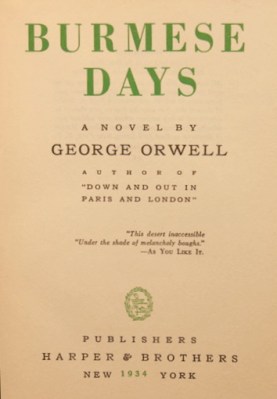I speak with little fear of contradiction when I tell you this is the first TechCrunch article posted from Myanmar aka Burma. Only a few years ago the Internet here was both tightly censored and insanely slow. But now that this country is “on the path to democracy,” according to Daw Aung Sun Suu Kyi herself, Free Wi-Fi signs are widespread, and its Internet is freewheeling and … merely incredibly slow. So slow that it often reminds me of the 2400 baud modems of yore. Progress!
In the overheated Internet cafe in which I type there are not one but two European couples poring over the most recent version of Lonely Planet’s Myanmar (Burma) travel guidebook. They don’t know they’re dinosaurs. Dinosaurs rarely do. But I have seen the future of travel guides, and it lives on your phone. I’ve been navigating through Cambodia, Thailand and Burma using Triposo‘s worldwide guide app, and it’s been perfectly adequate to the task — and unlike Lonely Planet’s own apps, it’s free. (I’ve also been using mine own app WikiSherpa, which draws on much the same sources; but honesty compels me to admit that, while WikiSherpa is more capable in a number of ways, Triposo is much slicker and easier to use.)
But enough about travel apps for us self-satisfied foreign tourists. What’s more important are the Android and Apple ads that clog the streets of Mandalay, the temple shopkeeper I passed yesterday playing a game on his Galaxy Note, the teenage girls riding sidesaddle on motorcycles holding their phones carefully just away from the tree-bark paste smeared in artful wing-shapes on their cheeks, serving triple duty as sunscreen, moisturizer, and fashion.
Just before the iPhone 5 was released, Andy Rubin tweeted that half a billion Android devices had been activated; during its presentation, Tim Cook mentioned that four hundred million iOS devices had been sold. Throw in BlackBerries and Windows Phones, account for people with multiple devices, and let’s round up and call it a billion. (This will not be my best-researched post ever. See above comment re Internet speed here.)
Well, the next billion smartphone users will be the second billion most affluent people on the planet, near enough; and their lives are very different from the first billion. Everyone (including me) keeps talking about how widespread smartphone adoption will be revolutionary for the developing world, but that’s all very airy and abstract. While travelling I’ve been trying to think of solid, concrete examples of what that revolution will look like.
Some are the same as anywhere; Facebook will remain the most popular app and web site anywhere it isn’t censored. But others? Take Uber, that darling of the rich first world. No such service will take off anytime soon in the poor world, where battalions of motorcycle taxis wait on every major streetcorner waiting for customers. TaskRabbit? Forget about it. Labor is cheap here already.
On the other hand, everyone here travels to other towns by bus, train, or shared taxi, and buying tickets and making arrangements for those is a process full of pain points ripe for disruption. Whoever manages to become the Craiglist or TicketMaster/LiveNation of developing-world inter-city transit will be a megazillionaire in short order on raw volume alone.
Then there’s finance. Old news in Kenya, where M-Pesa is already a revolution in action, but as far as I can tell there’s nothing near as dominant and disruptive in most places. Only a matter of time, and probably not very much of it; and banking — having a savings account and a way to transfer money to and from family and friends — really matters. Try to imagine life without it. That’s life for most people. And where there’s finance, insurance can’t be far behind.
But I think where smartphones will really matter is in the realm of education. There’s a whole ocean of knowledge out there, but until now, most people have only been able to sip from random patches with a thin straw. For the first time, the youth among those second billion smartphone owners will be able to get really interested in, or better yet passionate about, something — and then be able to learn everything there is to know about it, at their leisure, in their homes. If you ask me, that’s a revolution all by itself.
